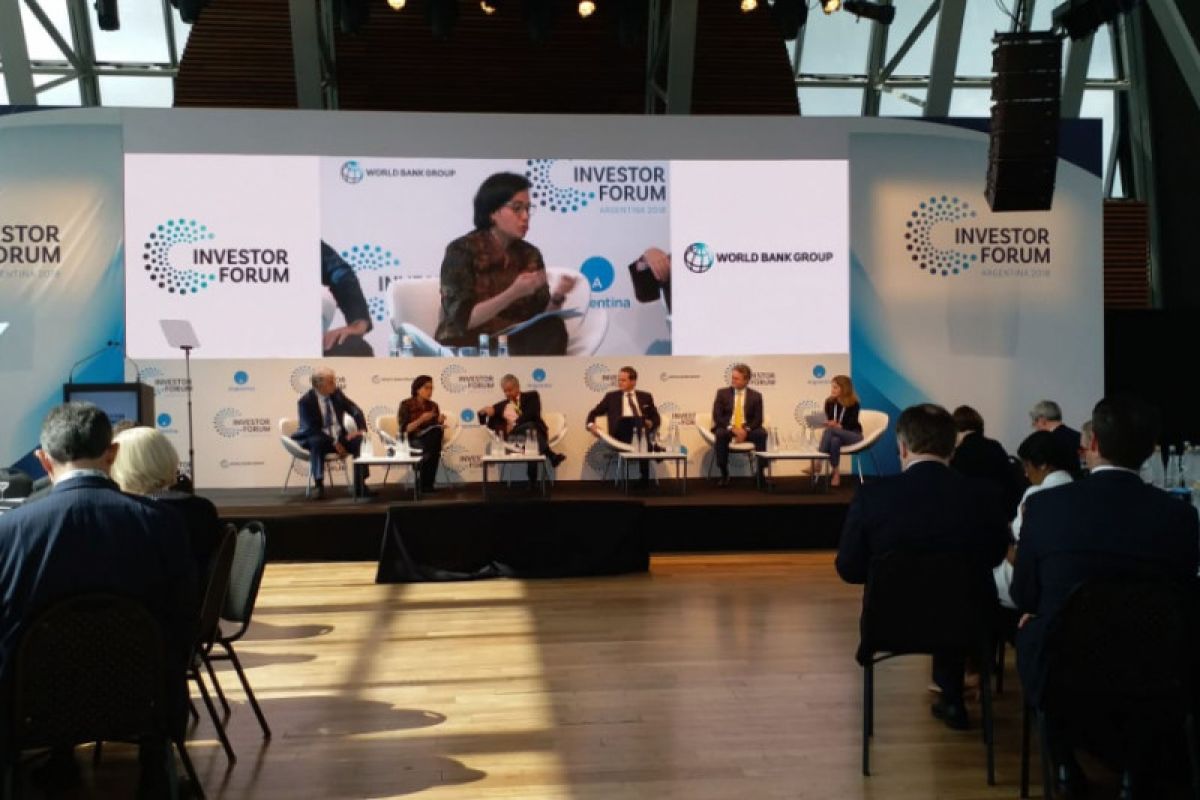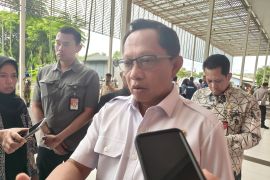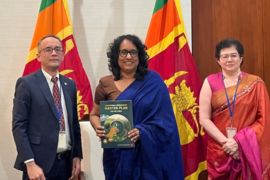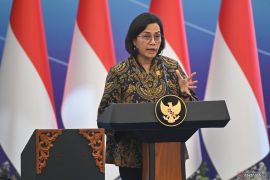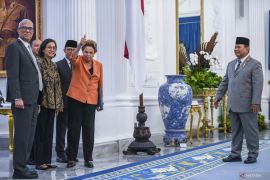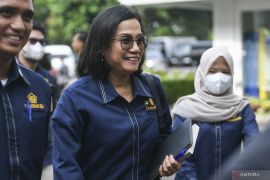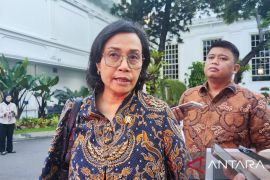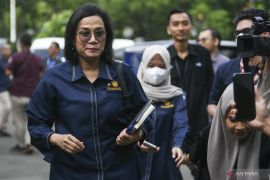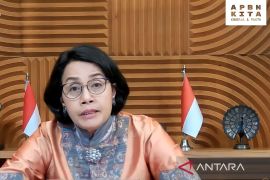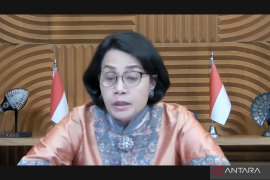In the official social media account monitored here on Sunday, Mulyani said the preparation was needed because economic recovery had not been evenly spread while economic policies among countries grew unsynchronized and worsened by trade confrontation policies.
"The trade war has led G20 to conduct multilateral reform of the World Trade Organization," she said.
In view of that she really hoped the G20 Summit in Buenor Aires, Argentina, could really produce a decision that would determine the direction and management of global economy.
She reminded that threats and opportunities caused by digital economy on opportunities and kinds of employment must continue to be paid attention to by G20 in the future becuase it would affect manpower policy, social safety net and taxation.
"The world will be more complex and globalization as well as technolgical progress would provide more opportunities to advance and catch up backwardness while at the same time provide complexity in the economic and social management of a country. Indonesia must work even harder and be smarter in developing its economy," she said.
The minister said President Joko Widodo`s focus on human resource and infrastructure development was right as it would be useful for economic distribution and improvement of productivity as well as the country`s competitiveness.
"Indonesia needs to continue to build the capacity of its children to understand and meet economic globalization, technological changes and more complicated and challenging geo-political dynamic. These are the challenges that will be met and overcome by our next generation," she said.
On a separate occasion IMF Managing Director Christine Lagarde said that pressure from the threat of trade war has already affected developing countries and thus correct policy would be needed to overcome the problem.
IMF predicts hike of import tariffs could threaten international trade and reduce by three fourths percent of global growth in 2020 and so efforts are needed to reduce tension to cut tariff hike and boost multilateral cooperation.
Other risks which are no less important and have taken the attention of IMF in the G20 forum was the increasing global debts reaching US$182 trillion in a number of developing countries and countries with medium to low income.
In view of that IMF has suggested a cushion or a fiscal policy as well as action to increase transparency on debts especially regarding their value and terms as part of efforts to maintain sustainability of debt management.
In all Lagarde gave recommedations on policies for G20 to overcome the various global challenges including improvement of trade performance to boost growth and employment and for normalization of monetary policy based on good and gradual communication based on data as an anticipation against the impact that follows and micro-and macro-prudential policies to overcome crisis risk and credit-based financing problems.
Other recommendations include flexibility in exchange rate as part of efforts to mitigate external pressure, reduction of import tariff and other policies that could weaken financial market players` confidence.
"Finally, wiping out hurdles to increase women`s participation in the economic sector. This is the key to overcoming persistent and high gap problem and it may be a potential source of growth for G20 countries," she said.
Reporting by Satyagraha, Yoseph Hariyadi
Editing by Yoseph Hariyadi
Reporter: Antara
Editor: Yosep Hariyadi
Copyright © ANTARA 2018
